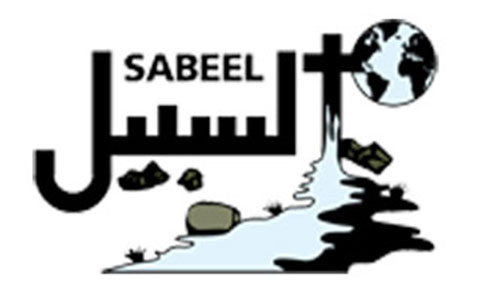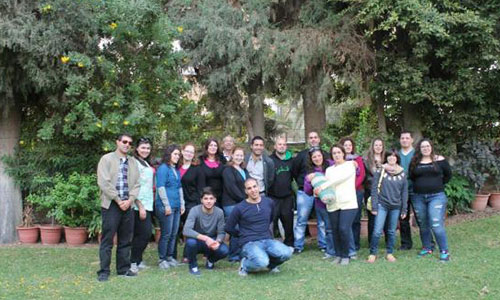
On Friday the 10th of January, a group of young adults, in the Christmas spirit, visited Christian families in need in the northern area in Palestine.
Visiting families is a way of telling them that we are here, that we are united, and that we have solidarity with the few Christian families left in these villages. The message is more than just materialistic and getting them supplies. It is also to make them feel united and know that even if distance keeps us apart, they are always in our thoughts prayers.
We were three groups who came together from Beit Sahour (Bethlehem area), Ramallah, and Jerusalem.
We met the eight participants from Bethlehem at the checkpoint at 7:00 a.m., continued to pick up four participants from Jerusalem, and then on our way to Nablus stopped in Ramallah to be joined with another thirteen participants. We arrived in Rafidia (Nablus) where we met Father Yousef Saadeh, the Melkite Parish Priest. This meeting gave a chance for the group to get to know each other over Arabic coffee at Fr. Yousef’s Church.
We then left to visit surrounding villages in Nablus and Jenin. We started at Sabastya, and visited the sites of John the Baptist Church, now called Yehya Mosque. We then continued up north to the village of Beit Imrin, where we visited an elderly woman. She is the only Christian left in the village. We exchanged Christmas wishes and offered a Christmas parcel. After that we went to Kufr Qud, where we visited seven families that live in the same neighborhood around the only church in the village.
On our way to another village we stopped at Burqin, a village with eighty Christian families and a church, where we had sandwiches for lunch in the beautiful garden. We headed later on to Der Ghazaleh Village, where we visited two families, and then to the last village called Jalameh. Here, we visited two families.
All the families were so kind and appreciative; it was hard for us to leave after such a short visit. The Christmas presents we gave them included flour, rice, oil, and sugar. Each person participating in the Sabeel event made a personal financial contribution earlier in the day. This money was split amongst the families who indeed needed them. It was not just giving them supplies and saying “Merry Christmas”; it was more than that. It was reaching out to our Christian community, meeting them, talking with them, feeling connected, and reminding them that we all belong here together. We also played with their children and shared candy! They were hospitable and treated us as if they have known us for years. With each family we prayed and sang hymns. The spirit of Christ was felt in each humble household.
To conclude our fruitful day, Fr. Yousef invited us for the famous Knafe dessert at his church in Rafidia, where we exchanged our goodbyes and gratitude. Hopefully God will give us the same strength to do the same event again – visiting even more families.




